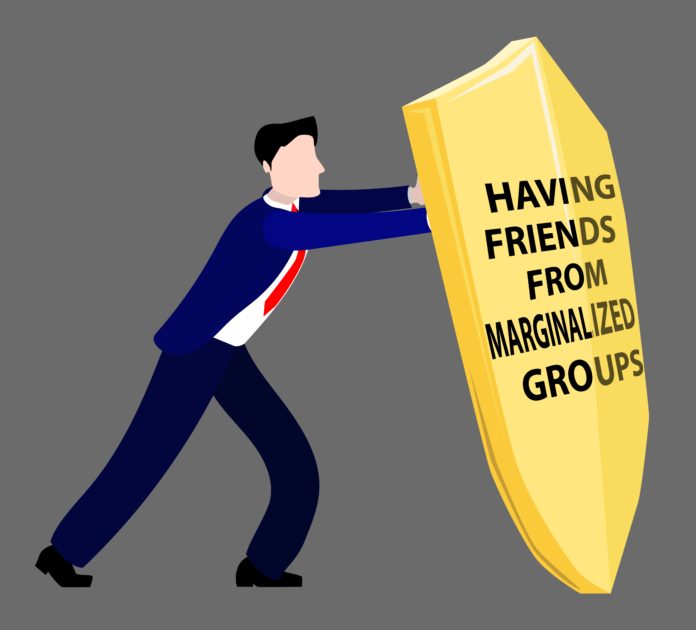Sometimes, it can be difficult to comprehend the actions of those around us. Sometimes, people can do unforgivable things and leave unforgettable trauma in their wake. Many times, people don’t recognize the way they’ve hurt others until it comes back to bite them. At that point, it can be hard to face the consequences of their actions.
In the case of sexual assault and trauma, it can be easy for perpetrators to justify their actions by looking to all of the positive interactions they’ve had in the past: “I have plenty of female friends,” “I’ve hired female workers in the past,” etc. These excuses and examples make an already convoluted issue that much more complicated. But let’s be clear: Just because someone claims to support those affected by sexual trauma doesn’t mean they were incapable of causing that trauma.
Using the title of “ally” as an exemption from responsibility is a major abuse of privilege. Not only does it sully the name of true allies, those who work to prevent sexual assault and sexual abuse, but it also casts doubt on the legitimacy of sexual assault claims. Women all over the country struggle to work up the courage to report crimes against perpetrators, often for fear of judgement and disbelief. Some never report for fear of the reputation from their attacker. The fact that having a good reputation could possibly keep a man from taking responsibility for their actions is appalling. Unfortunately, it happens all too often and can change the course of survivors’ lives forever.
A similar example is present in racism — many times, white people will claim that since they have black friends, or they totally support the Black Lives Matter movement, then they are entitled to use racial slurs or to appropriate black cultures. Not only is this incredibly offensive, but it has become a stereotype between races — and the effects of this have been shown in television shows like “Atlanta” and “Dear White People.”
Trauma is interpreted differently by different parties: One person may believe that there was no trauma caused, while the other party involved could site that moment as a turning point in their life’s trajectory. This is why it’s crucial to understand that what you do has an effect on others, and to act accordingly. Whether it’s clear to see or not, claiming to be a friend and ally of the opposite gender in order to garner some sort of sympathy not only systemically casts doubt on sexual assault or harassment claims, but it also reinforces a culture where violence and victim-blaming is deemed acceptable.
Sexual assault issues are never one-sided — it’s a fact that has become painfully clear for those who have survived a sexual trauma. Rather, in an attempt to show how monstrous these types of acts are, we as a society have dehumanized the offenders. Yes, they are still human. Yes, humans make mistakes. Yes, you can be a normally functioning member of society and still have committed egregious wrongs against your fellow men and women. However, what those who have created trauma through sexual impropriety or assault need to understand is that no matter how out of character allegations may seem, whether you truly believe yourself to be a “good person,” we must give the claims due diligence. Ignoring, casting doubt on or outright blaming those who are coming forward and sharing stories of sexual trauma does a disservice to society.
Recognize that your actions in the past may have hurt someone, no matter how long ago it was or how much you’ve changed since then and allow the law to do due diligence to your case, no matter the result.






